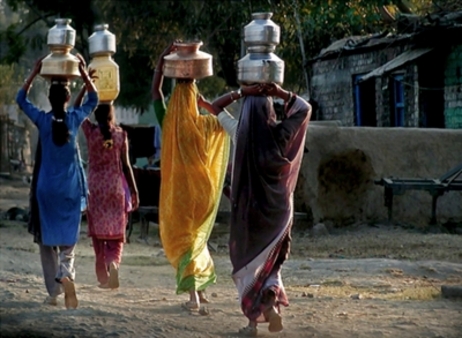Finding Solutions to India’s Sanitation Problems
Published May-28-11Breakthrough:
Open innovation contest to generate revolutionary toilet designs for rural India.
Company:
FINISH Society, India
The Story:
 Open innovation enjoys an impressive track record in helping to tackle numerous problems and issues in the developing world, such as lack of access to clean water, the threat of mosquitoes and malaria, and educational deficiencies.
Open innovation enjoys an impressive track record in helping to tackle numerous problems and issues in the developing world, such as lack of access to clean water, the threat of mosquitoes and malaria, and educational deficiencies.In 2010 FINISH, a not for profit organization set up to improve sanitation in rural India launched its Sanitation Challenge Contest and reached out to innovators across the globe to generate new sanitation system designs for the country.
Sanitation Problems
Lack of access to adequate sanitation is a huge problem in India. According to UNICEF, about 50% of the country’s population (approximately 638 million people) resort to open defecation. Not only is this a serious health hazard, for example diarrhea caused by lack of sanitation is a leading cause of death, but there are other problems as well. For example, the dropout rates of girls in schools are directly related to the unavailability of toilets. Therefore, improving sanitation will also improve the living and economic conditions of the rural poor.
According to FINISH, the sanitation problems exist for a number of reasons including:
- Budget and time constraints result in poorly built toilets
- There are no clearly defined standards for toilets and so some are environmental pollutants
- Lack of knowledge about appropriate toilet designs for diverse environmental conditions, water requirements and local availability of materials.
Innovative Toilet Designs Required
The organizers of the open innovation contest were after novel and revolutionary improvements in toilet designs that would provide a safe disposable system that would be suited to different climatic, soil and water table conditions. Currently, what might work in area, maybe useless in another.
A total prize money pot of Euros 10,000 (approx USD $14,500) was available and the best designs would be installed in rural India under FINISH’s program of providing one million toilets to low income areas.
To help focus thinking the competition provided participants with a few points to consider such as a reminder about constraints, and the need for innovations in pans that use less water and water seals that require low amounts of water without creating foul smells.
The open innovation contest was launched in November 2010 and after three months innovators from 26 countries had sent in more than a hundred submissions. The multidisciplinary panel of judges whittled down the submissions to 13 finalists and ultimately there were three winners and three consolation prizes.
Winners
The first prize winner in the systems division went to Benjamin Clouet who picked up a Euros 6,000 (approx USD $8,600) for his combined shower, urine diversion, dry latrine and drip irrigation system. What particularly struck the judges was Clouet’s understanding that sanitation is not solely based around the toilet, and the incorporation of a shower allows more personal hygiene needs to be met.
The drip irrigation system means that there is no direct handling of urine and water runoff from the shower together with urine can be used for gardening projects – domestic and income generating. The device is also simple to use, and easy to build and install using local tools and skills. Other prize winning innovations included a dry composting toilet building for schools and other public facilities.
Work on implementing the solutions is underway and overall the competition was judged to be a huge success. Not only because FINISH found innovative sanitation solutions, but in addition there was a clear demonstration of how open innovation could provide an organization with a variety of ideas and insights that it would not have reached had it not been for external sources of brain power.
“Believe me, the options that came out of this contest were much more innovative than the one we had collected”, Francois Brikke, Chief-Water, Sanitation and Hygiene for UNICEF Indonesia.
Next Story »

